There may be two sides to accusations of misappropriation and waste
Two books, entitled Avarice by Emiliano Fittipaldi, a journalist with the Italian weekly newspaper L’Espresso, and Way of the Cross by Gianluigi Nuzzi, a panelist on the Italian television talk show Mediaset, both published in early November in Europe, claim to reveal that the donations received by the Holy See “are not all applied to works of charity.”
According to an Agence France-Presse (AFP) report dated November 3, 2015, Avarice cites as an example “200,000 Euros diverted from a foundation affiliated with the Catholic hospital Bambino Gesù (‘Child Jesus’) to finance the renovation of the apartment of Cardinal Tarcisio Bertone, former second-in-command [head of the Holy See Secretariat of State] at the Vatican.” According to Emiliano Fittipaldi, a total of 400 million Euros have been diverted from the funds of Peter’s Pence for various needs of the Curia.
Way of the Cross also sifts through the collections taken up by the Vatican, which in 2012 amounted to 53 million Euros. In the opinion of Gianluigi Nuzzi, this sum “must” be placed at the Pope’s disposal to support, among other things, the Church’s activities in the world, “particularly on behalf of the most deprived.” According to the Italian journalist, most of it was used to make up for the structural deficit of the Holy See because of its “increasing payroll expenses,” “works assigned without competitive estimates,” “an undervalued real estate patrimony,” etc. He says that there was even “a bank account still open in the name of a deceased pope.” The November 11 issue of Le Monde reports that the book depicts “a State adrift, troubled by a violent confrontation between the Pope, aided by a small team of ecclesiastics and laymen, and a Vatican administration jealous of its prerogatives and sitting on its little secrets and big privileges.”
An Investigation is Started
These many disclosures recall the “Vatileaks” affair that caused a scandal in 2012 during the pontificate of Benedict XVI. This time documents were stolen, not from the Pope’s office by an unfaithful majordomo, but from the Vatican’s bank accounts by persons appointed by the Pope himself for the purpose of reforming its finances. On November 2, 2015, the Holy See’s Press Office announced the arrest of two former members of the Commission to reorganize the economic-administrative services of the Vatican (COSEA). These two suspects are accused of having divulged accounting documents. The persons in question are Francesca Chaouqui, an external consultant of the Vatican, who was described by the Canadian website La Presse on November 3 as “seductive and indiscreet.” Released and under house arrest, this Moroccan citizen of Italian descent had been recruited because of her “experience in auditing firms and in the field of communications.” The other individual suspected of having divulged information is Msgr. Lucio Angel Vallejo Balda, a 54-year-old Spanish prelate “close to Opus Dei,” according to all the media reports. He has been incarcerated since November 1.

Francesca Chaouqui
The journalists Gianluigi Nuzzi and Emiliano Fittipaldi are also the object of an investigation for complicity in the diffusion of confidential documents, which is a crime in Vatican City, as codified by a law passed in July 2013. This law stipulates that “anyone who illegitimately procures or reveals information or documents whose diffusion is forbidden is liable to between six months to two years of imprisonment, or to a fine of between 1,000 and 5,000 Euros.”
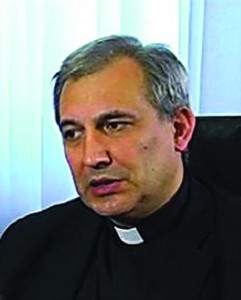
Monsignor Lucio Angelo Vallejo Balda
The Holy See’s Response and Many Denials
On November 4 the Holy See published a series of communiqués to present its version of the facts. In a long note delivered to journalists, Fr. Federico Lombardi stated that “most of the revelations are in reality information that is already known” and they concern an important “collection of data and information started by the Holy Father himself” with a view to reflecting “on the reform and improvement of the administrative situation of the Vatican and of the Holy See.” The director of the Press Office added that “the purposes of the Peter’s Pence funds are varied.” Although “the Pope’s charitable works for the poor are certainly one of the essential aims,” he emphasized, the Supreme Pontiff can “himself evaluate the urgent needs and the way to respond to them.” Now “the Pope’s service includes also the Roman Curia,” Fr. Lombardi declared, but also “his initiatives outside the Diocese of Rome, the communication of his Magisterium…, supporting 180 papal diplomatic representations throughout the world…”
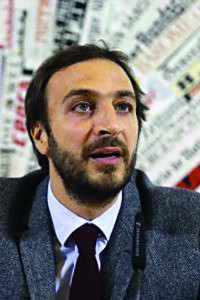
Emiliano Fittipaldi
Moreover, the denials and the adjustments made by persons incriminated in the two books have multiplied. Thus the Prefect of the Secretariat for the Economy, Cardinal George Pell, responded in a communiqué issued on November 6, detailing the expenses of his dicastery for the year 2014, starting from its creation in March of the same year. According to the prelate, these include “operational costs, including expenses for setting up” the Dicastery, namely “furniture and computers as well as salaries.” The communiqué deplores “several false and erroneous allegations.”
For his part, Cardinal Velasio De Paolis, President Emeritus of the Prefecture for the Economic Affairs of the Holy See, who is accused of living in a 445-square-meter [4,780-square-foot] apartment at the Vatican, explained, in remarks quoted by the November 10 issue of La Croix, that it was in fact a 250-m2 [2,690-ft2] flat and that he “lives there with two nuns.” “There is nothing luxurious inside…. It is not up to the journalists to gauge my style of poverty,” he added.
The niece of John Paul I, Pia Luciani, denounced “veritable hoaxes” in an article that appeared in the daily newspaper Il Mattino di Padova and was reprinted by APIC on November 9. According to Gianluigi Nuzzi, a current account exists at the Vatican showing a balance of more than 110,000 Euros in the name of Albino Luciani, who was Pope for 33 days in 1978 — a sum that allegedly had not been returned to the pontiff’s family after his death. “My uncle never had personal bank accounts” nor “money in the bank,” Pia Luciani retorted.
Accused by Emiliano Fittipaldi of living in a 500-square-meter [5,380-square-foot] apartment with a large terrace, which allegedly had been renovated by the Foundation of the Vatican’s pediatric hospital Bambino Gesù, Cardinal Tarcisio Bertone responded as early as November 5 in the columns of the Italian daily newspaper Il Corriere della Sera: “The Governorate [of Vatican City] presented me with 300,000 Euros of expenses: I paid with my savings for an apartment that is not my property and will remain the Governorate’s.”
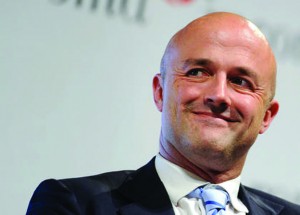
Gianluigi Nuzzi
Cardinal Bertone assures his readers that he “saw nothing” of the 200,000 Euros that the Foundation of the Holy See’s hospital supposedly paid for the work on his apartment, and he gave them to understand that the Vatican administration itself had presented the invoices to the Foundation. “I categorically deny having given instructions or having authorized the Foundation to make any payment whatsoever,” he added. He also explained that “the apartment measures 296 square meters [3,180 square feet],” that it was a property “uninhabited and abandoned for years” and that it had been assigned to him “with the approval of Pope Francis and the superiors of the Governorate.” He recalled living there not alone but with a community of three nuns and a secretary.
The Supreme Pontiff is Spared
Pope Francis is not called into question by the two published works; quite the contrary: Gianluigi Nuzzi presents, in his investigation, a transcription of audio recordings that show “the Pope’s firmness with regard to excessive expenses” according to a November 5 APIC report. Thus, on the occasion of a meeting that was held on July 13, 2013, Pope Francis allegedly addressed the members of the Commission for the reorganization of the Vatican’s economic-administrative services (COSEA), which he had just formed: “And he showed his interlocutors, who were in charge of restoring order to the finances of the small State, that he was determined,” according to APIC, which repeats in part the remarks published by the journalist. “It is necessary to clarify better the finances of the Holy See and to make them more transparent,” he supposedly said, before stating that “the number of employees has increased too much. This creates a large expense of money that can be avoided…. There are some expenses, the origin of which is not clear in the procedures. This is seen in the balance sheets…. I think that it is necessary to continue in greater depth the work of clarifying the origin of the expenses and the forms of payment.”
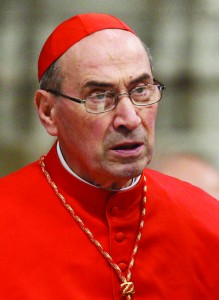
Cardinal Velasio De Paolis (CNS photo/Paul Haring) (Nov. 24, 2010)
Questioned on this subject by the daily newspaper Le Monde on November 3, Gianluigi Nuzzi declared that “there are on the one hand the Pope and the lay and religious experts with whom he has surrounded himself to reform the Church, and on the other hand the Curial system that is opposing Francis by legal means, such as inertia, and by illegal means, such as thefts or intimidation.”
Who Benefits From This Press Campaign?
As Raphaël Zbinden remarks in his press review for the Swiss Catholic web portal (cath.ch) on November 5, “the press in general does not seem to doubt the veracity of the information contained in these works.” It seems to be established that “the Vatican is prey to utter financial or moral incompetence.” This poor image of the Holy See is generally associated with an “old guard” of prelates who “benefit in particular from luxurious residences, rented at bargain rates, if not for free” as the November 4 issue of Libération suggests. The leftist daily newspaper is indignant about the “financial turpitude of the Roman Curia,” its “luxurious advantages” and its “muddles, corruption and incompetence.”
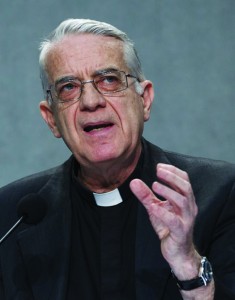
Fr. Federico Lombardi (CNS photo/Paul Haring) (Aug. 13, 2012) See GABRIELE-TRIAL Aug. 13, 2012
The newspaper Le Monde, cited by APIC on November 5, summarizes the situation as follows: Two camps are openly confronting each other: on the one hand the austere, frugal managers gathered around Francis, on the other hand the big spenders, who are accustomed to purple robes, lace and ceremony.” Raphaël Zbinden concludes from this that many media outlets are thus conveying the image of a “white knight” Pontiff, who is considered thoroughly honest and eager to have done with “a muddle (that) was a common style of management at the Vatican.”
“The Pope, who wants to bring the Church back to being very close to the poor, must face a camarilla [clique] in cassocks who know very well how to safeguard the advantages that they have won,” Le Monde again writes. Libération even recalls the virtues of Pope Francis who “no doubt to set an example” has chosen to “live in a modest, 50-square-meter [540-square-foot] apartment.”
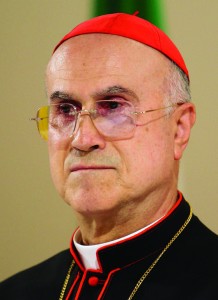
Cardinal Tarcisio Bertone
But then, “What do we want to do?” asks the Vaticanist Giuseppe Rusconi at his website Rossoporpora, and reprinted by the website Benoît-et-moi on November 8. “Follow this borrowed [i.e. conveniently assumed] populism that is surging, evict a few cardinals and send them to a hotel (at a cost that would not be negligible)? Redesign the apartments, dividing them up into four or five parts…?” And he warns: “Be careful not to interpret the ‘poor Church’ (in the sense of ‘sober’) as a ‘barefoot Church,’ as desired (openly or surreptitiously) by all who aim to divest the Church of her symbolic elements that are useful in identifying her socially.” And the Spanish friar and blogger Fray Gerundio de Tormes asks very pertinently, on November 6, 2015: “If people want transparency in economic affairs, why do they not want it on doctrinal subjects?”—as the Final Report of the Synod on the Family has unfortunately shown.
(This article originally appeared on the website Documentation Information Catholiques Internationales, no. 325, November 20, 2015)

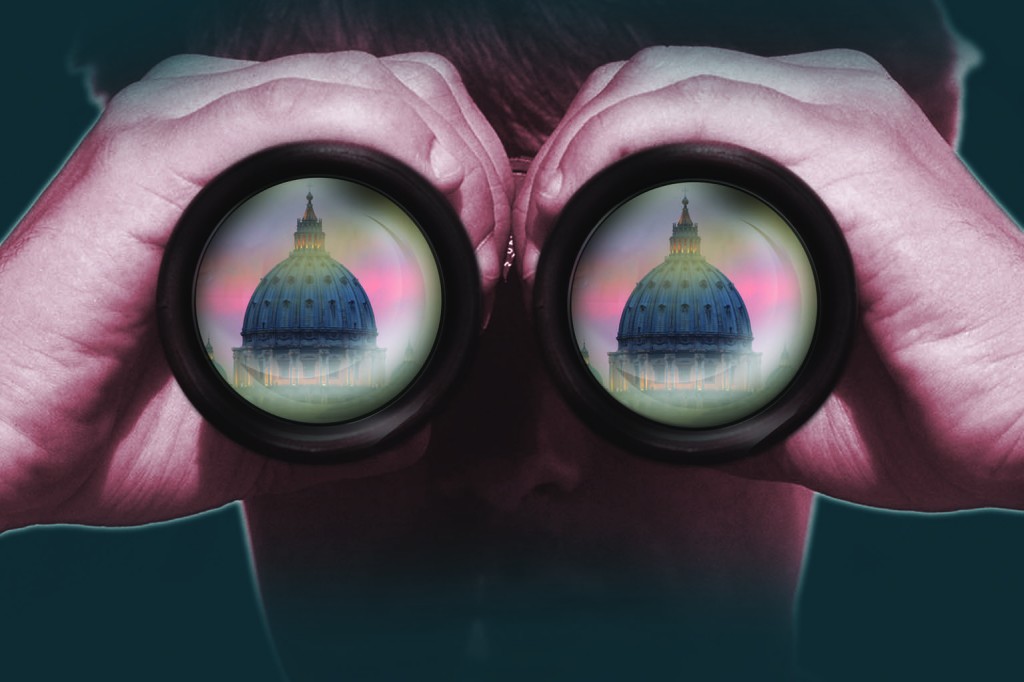
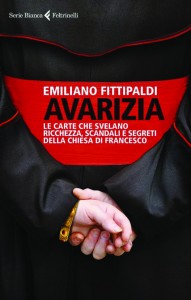
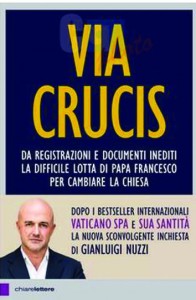


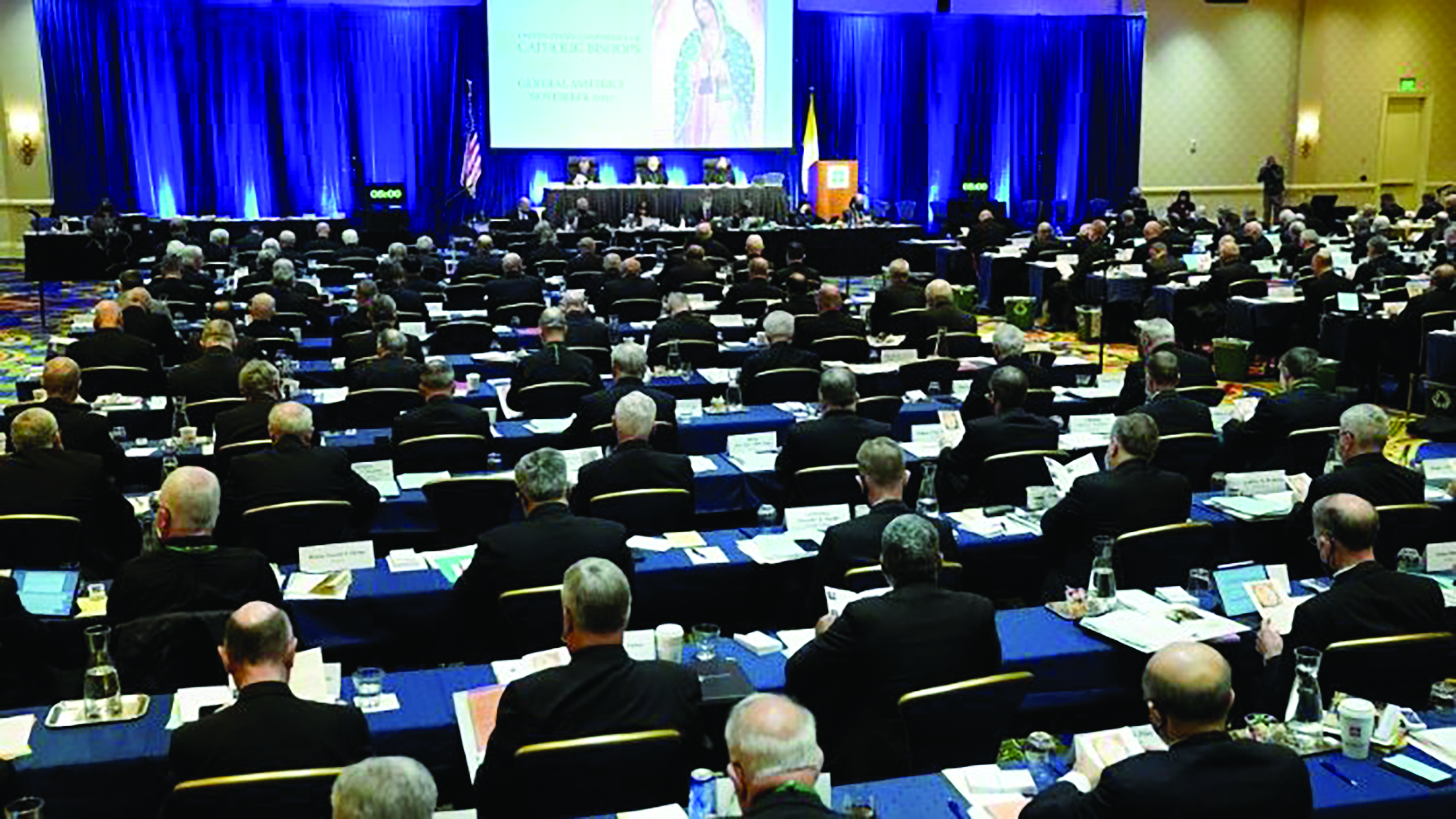
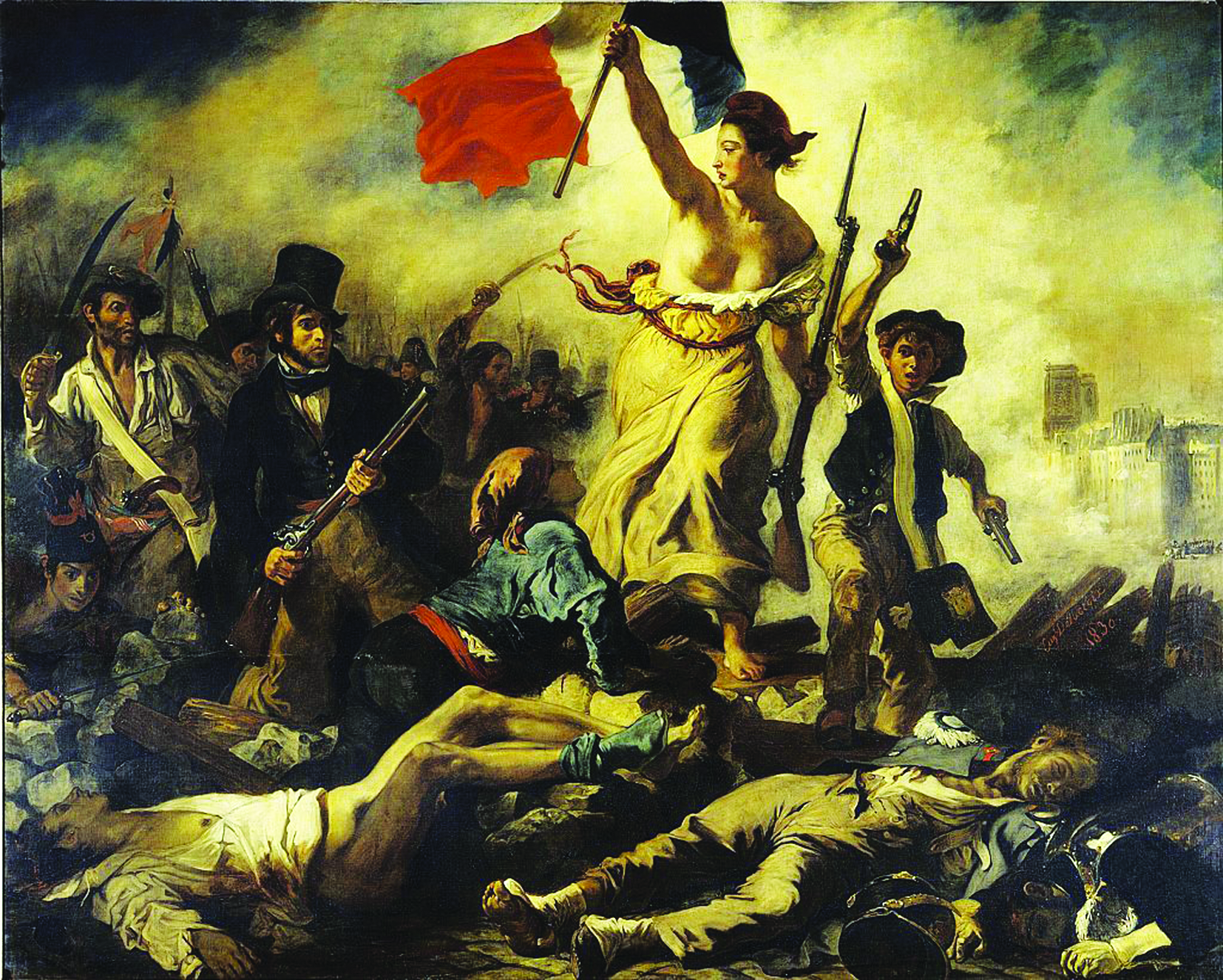

Facebook Comments